The Boys S1 ★★★★☆
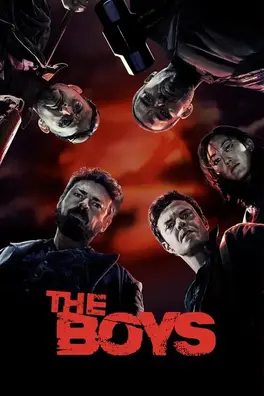
Superheroes are inherently fascist 🫡

Superheroes are inherently fascist 🫡
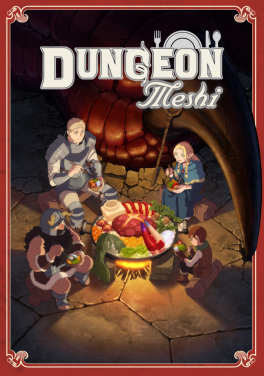
When I first watched this it took me a while to get over the overtly gamey aspects of the setting. It’s an acquired taste, y’know? Need to chew on it for a while. But there is a great satisfaction in seeing the concept of a dungeon being carefully examined, butchered, and picked part. To consider how it works and what needs to be true for it to exist and for it to continue to exist. Its economy, its ecology, its lifecycle. And there is a funny, compelling and interesting story woven throughout. It is not just wanking itself off about lore. The story is almost fractal in nature. Examining from the top down the world, the dungeon, the adventures in it, and the monsters that make their way into the adventurers’ stomachs. There are so many little things to pick up on and watch out for on rewatch. As a small but amusing one I don’t think that I noticed on my first watch: During the first intro there is a party trying to use a dog to harvest mandrakes.
I do think it feels like overly direct in adaptation at times. Awkward asides that interrupt the flow of conversations and various little visuals that I think work better in a comic than on television. And the way episodes are so clearly two chapters stabled together with more than often very abrupt and obvious transitions in the middle. Towards the end these start to feel like they’ve really gotten out of sync with the storytelling, with a run of episodes where the first half of one episode continues quite directly from the second half of the previous episode, only to change to something different in the second half that will be continued in the first half of the next. The Golden Country, griffin, and changeling episodes all follow this pattern with the somewhat underwhelming finale being confined to only the second part of episode twenty-four.
Still, I am very much looking forward to the second half of this show.
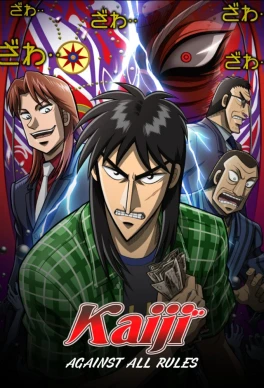
A man sits playing a pachinko machine for ten episodes straight and it is somehow incredibly gripping.
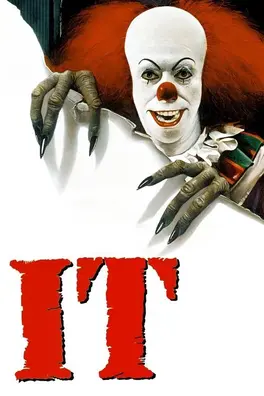
Compelling at the start but starts to get bogged down by repetitive scenes off all the kids being haunted in roughly similar ways. This only gets worse in the second half where, as adults, the cast still seemingly spend ages sitting around waiting for the next horror scene to happen and having flashbacks to even more shit that happened to them as children that wasn’t in the first part. When they finally do act the climax was less interesting than the one in the first part. I feel like the 2010 movies failed in a lot of similar ways but with the second half in that being even worse. Puts me in mind to read the original novel and try to understand what happened to it in adaptation.
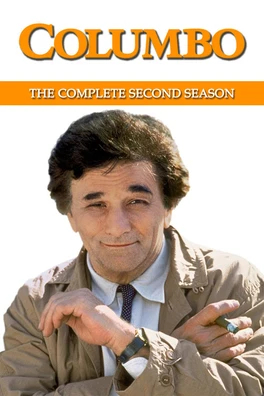
Very strong series. Does feel a bit less experimental than the first was at times but they have also settled into a rhythm that works. The only real stinker was Dagger of the Mind. They do lean into giving Columbo some more identifiable quirks with the car and the dog and they are going to bring them up enough times to make sure you know that these are his quirks and you will find them endearing but it isn’t overbearing and the dog and the car are both cute.
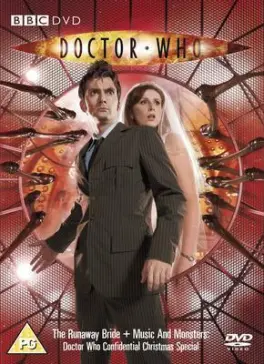
Fun but in a popcorny way for the most part, which I guess is appropriate for a Christmas episode. I had forgotten how messy this was. Feels very all over the place, bouncing from setpiece to setpiece with the Doctor saying “but that’s impossible!” half a dozen times to segue into the next story beat. Also, the Segways. The awkward staging of the Racnoss queen feels very, well, stagy and the hamminess of her acting with the bit with Lance and the axe feels like it tips over into pantomime. Which, again, appropriate I suppose.
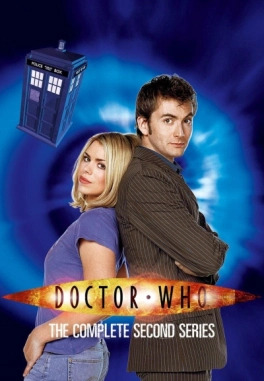
Rose is immediately back on form after the Christmas episode and much more proactive than I remembered. You can really see her character development from the end of the first series really sticking. But then there’s not much really for her or the Doctor’s character arcs this series as a result. The series-long arc is a bit more present here, in terms of characters mentioning Torchwood a lot and a lot more obviously than “bad wolf”, and that actually having some meaning this time, but the overall story this series is mostly the Doctor and Rose are now having a great time travelling together and never want it to end and then it does. Davies’ mode of grand finale based on endless spectacle and constantly throwing more stuff in starts here and it does work—he gets to throw cybermen and daleks together for the first time and it’s great fun—but it I think there is a lack of substance or connective tissue. And as for the individual episodes there are a couple of shite ones this time as and none that really stand amongst the greats. But it’s still very fun and Piper and Tennant are both great leads (even if I miss Eccleston immediately).
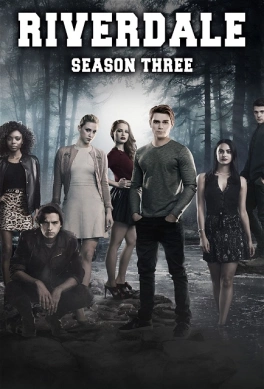
There is a sense of wrongness that creeps up on you as you rewatch the third series of Riverdale, subjecting your friends to it who have never experienced it. There is the obvious things: The Dungeons & Dragons cult, the other cult, the Gargoyle King, Hiram’s evil council of vagueness, Archie fights a bear. Reality is slipping more and more in this show. But you remember that. That’s the ridiculousness that you looked forward to sharing with your friends. But reality seems to be slipping out of the show in even stranger ways. You already joked that nothing in this show matters because it will all be forgotten half an hour later to focus on some new drama, but this is genuinely becoming hard to follow. People talking about plot points that have not happened, deaths you don’t remember seeing. Characters suddenly in completely different places episode to episode without seemingly any reason. Was it always like this? You definitely don’t remeb—oh. The torrent you downloaded had all the episodes out of order. That explains a lot. You all agree that this is an improvement over watching the show normally and don’t bother fixing it.
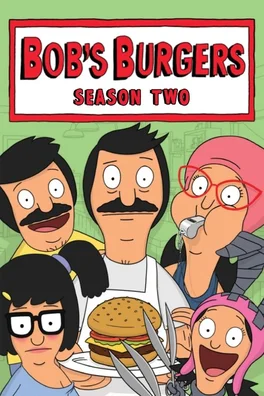
Still fine 👍
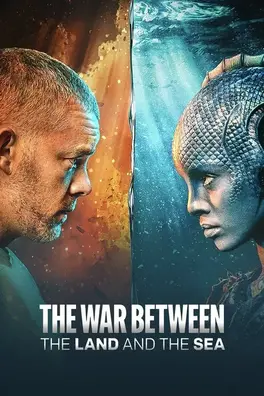
There should not be a third definite article in the title of this show. Started off better than I expected and a bit less dour and self-serious than I thought it might be but it still feels very out of place when anyone mentions the Doctor or reminds us that it’s a Doctor Who spinoff. Still, after a surprisingly good second episode the third was disappointing. The show rallied a bit in the fourth, and then utterly shat the bed in the finale. None of that made any sense.
UNIT is also just such a problem for Doctor Who. They ping pong back and forth between the funny science sidekick brigade and the sinister shadow government and positioned as largely protagonists here they can’t really be either and when you try to just make them normal (no Avengers tower or quirky robot analyst here) they are boring as hell. The dual roles also mean that everyone introduced as a scientist ends up morphing into a military leader. Kate was originally introduced as chief scientific officer, not commander-in-chief, and as soon as she steps away for a moment in this Shirley is suddenly in charge. Even Osgood got a version of this. Malcolm Taylor from Planet of the Dead is probably leading death squads offscreen somewhere.
In fairness to the show it is an incredible achievement that they managed to come up with a worse name than sea devils and worse “scientific” names than Homo reptilia.
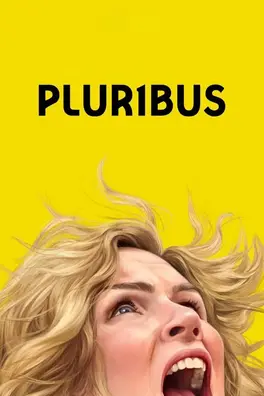
I had expected from the premise that this would be a miniseries, rather than something ongoing. This was great and Vince Gilligan as a good track record but I wonder where it will go in future series. The ending here fundamentally changes what the dynamic can be going forward.
Feels like it’s bouncing around a lot of ideas in a really good way. Dynamics of “love” and abusive relationships, colonialism, death of culture, individualism and “individualism”. Good shit.
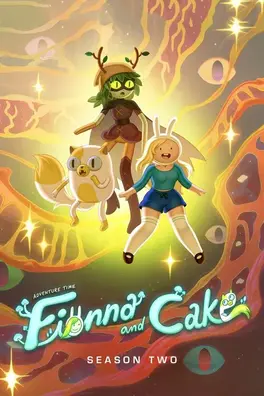
I never liked the Fionna and Cake episodes of Adventure Time and I am generally biased against multiverse stories and alternative universe versions of characters so I was surprised at how much I had enjoyed the first series. The second definitely did not land as well with me, though. I think the second half was a lot stronger than the first but overall the halfway house between episodic and serialised formats did not help it. The episodes that do something very different and self-contained, like Fionna and Fennel getting high and going to Venus, were highlights but otherwise it often felt like it was spinning its wheels while throwing up new hurdles to cause the protagonists to not make any progress on anything. Ended up feeling very meandering and unsatisfying. Also the original show ended over half a decade ago now and I do not remember who any of these side characters are.
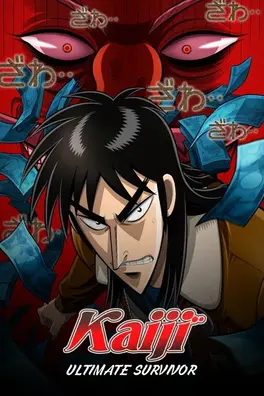
The extreme melodrama isn’t my favourite thing but I have to respect it making it take ten minutes to play a single card of a card game not boring and I do love to see this sad, wet, milk-soaked ragdoll cry out his body weight in water every three episodes.
I think it’s funny that Hyodo almost acts as the audience surrogate while being the main villain. We are all just here to watch Kaiji suffer more and I also really enjoyed the role reversal at the end of E-card where we switch to Tokegawa’s once Kaiji gains the upper hand.

tuoys :)
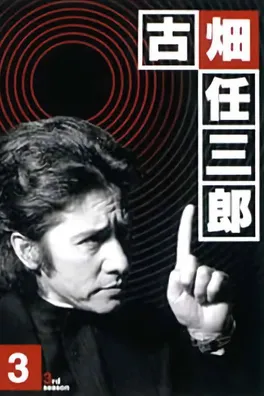
It’s not bad but the show really doubled down on its worst parts. When the show focuses on the supporting or recurring characters it is just the same unfunny comedy every time. Imaizumi has been completely Flanderised and is almost unbearable to watch and none of the rest of the recurring cast or running jokes really add anything. The one exception is the two-part finale, a real highlight of the series, especially the first part, where the extra time gives the show a lot of room to breath and Imaizumi and Saionji actually get to do things. It is still quite good when Furuhata is actually the focus and the one recurring joke that I do enjoy is Furuhata trying to impress people by saying he’s the guy who arrested SMAP.
Sorrowful Perfect Crime/The Housewife Murder also stands out as a mean episode. I think that the writers did not intend to the murderer to be as sympathetic as I found her. They write a very striking abusive relationship where a woman’s self-esteem is constantly undermined by her husband who is trying to control every aspect of her life, and then Furuhata spends the rest of the episode proving him right and then seems to end with suggesting that she was completely delusional about her job, talents and dreams.
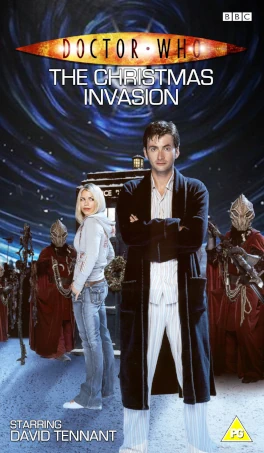
It is a bit of a letdown after the first series, isn’t it? Not that Tennant is bad, he makes a great first impression here. But everything else feels a bit weak. Rose’s character development gets rolled back and she feels utterly helpless without the Doctor, having just saved him right before this.
I am never very fond of them trying to make the Doctor an action hero badass and the fact that the sword fight looks so rubbish doesn’t help. There are a few highlights. I enjoyed the Sycorax switching to English mid-speech as a sign that the Doctor was awake again (even if I also don’t like the translation circuit working through him makes him even more special and magical) and visually evoking East Enders with the overhead view of the alien invasion is a cute way for Davies to wear his soapy influences on his sleeve.
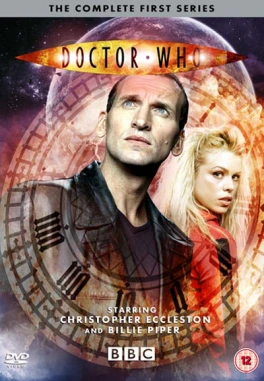
Fantastic! Christopher Eccleston is incredible as the Doctor. The goofiness, the anger, that shit-eating grin. The energy he brings to every scene is wonderful. Billie Piper opposite him is wonderful as well and I definitely did not appreciate her as Rose when I saw this originally back in the day.
I don’t think that there’s a bad episode here. The Long Game is perhaps the most forgettable, but it’s by no means bad, just bog-standard Doctor Who. The Unquiet Dead is perhaps not incredible either, but it has its moments. Gwyneth is definitely another character I did not appreciate as much as a teenager.
But every episode is also doing something important, either laying the groundwork for or pushing forward the characters. People make fun of the season arc just being the words “Bad Wolf” spread across various episodes and miss the actual stories happening in front of them. Rose becoming someone who can’t just sit by and watch things happen any more, the Doctor having to face how far he will or won’t go any more in the aftermath of the Time War, dealing with his own guilt. And you just have an amazing run of television from Father’s Day up through The Parting of the Ways, with only The Long Game getting in the way of adding Dalek to that.
Steven Moffat’s two-parter gets heralded as some of his best work here and not undeservedly. I remember reading someone saying before that one gets decades to write a first novel, and only a year or two to write a second. Obviously this is not Moffat’s first television script (or, technically, his fist Doctor Who script either) but it is his first big foray into writing a proper Doctor Who story with his big puzzlebox finale style and it is refined to a tee. Having watched it too many times it’s impressive just how dense the first conversation with Rose and the Doctor is with set-up and the whole two-parter feels like this. Almost every detail that gets layered on over the course of the two episodes coming together in a big, emotional payoff—like a good detective story. Could do without the wank about Britain standing tall, alone the Nazis, though.
And from Russell T. Davies we have the wonderful soapiness and campiness that gives the sci-fi nonsense its heart and makes the wobbly sets and bad C.G.I. all the more endearing, only heightened by how incredibly mid-2000s it all is. This show is not trying to be timeless and absolutely did not need to be. For better and for worse it’s all here, in its exaggerated, sci-fi, bloom-filled sheen. Downing Street is being run by something wearing the skin of a dead and hallowed out Labour Party, dragging the world into war with lies about W.M.D.s; Rose, disgusted by Cassandra, still can’t help but see her as a source of thinspiration (2000s diet culture was utterly vile); Rose calling the Doctor gay; the fears of the T.V. news conglomerates and rot of reality T.V. almost feel quaint now, but being slammed in the face with the Big Brother theme as the grand threat to open the penultimate episode with is so utterly unhinged in a way that is not going to land with anyone who was not at least somewhat engrossed in the culture of British television of the time. That specific mode of of-its-time campiness, and an edginess too, dwindles out as the show goes on. I can see why Smith’s Doctor seems to be the one that resonates more with the American fanbase; Moffat’s version of the show having a little bit more timelessness to it. But I’m getting ahead of myself now.
Sad to see Eccleston go, but looking forward to seeing my partner react to Tennant.
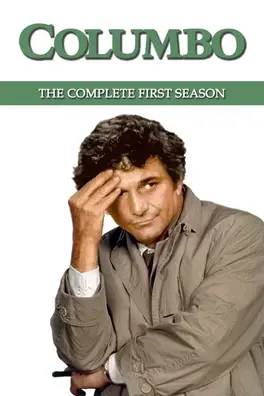
It is simply incredibly satisfying to watch Columbo slowly and methodically pass a rich socialite enough rope to finally hang themself with.
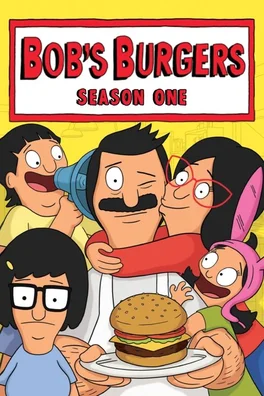
Never really has me laughing that hard but has been a good second monitor show or something to throw on when I’m too tired for something very mentally engaging.
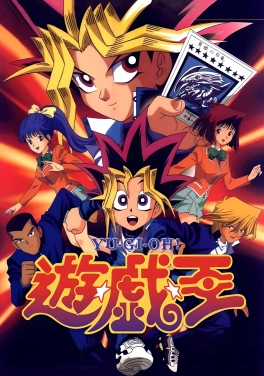
Seeing as I’ve been on a Yu-Gi-Oh! nostalgia trip I decided to give season 0 a watch for the first time. Interesting seeing all our friends in a slightly different context with some different stories and also Bulma Miho is here.
As there’s no official English dub this is also my first time hearing this version of the characters. Yugi always looked younger than he should but here he sounds like an actual baby with Yami sounding more like how I would have expected Yugi himself to sound. Anzu doesn’t seem feel much different from Téa, Jonochi is more pervy than Joey and Honda is a weird fascist about keeping the school clean and obsessed with Miho but at least that gives him something to actually do as a character compared to Tristan. Miho herself is just annoying and adds pretty much nothing.
It does feel like it has somewhat of the opposite pacing problem compared to Duel Monsters. Instead of having multiple episodes dedicated to one match of the same card game we already know the rules to, most of the runtime of each episode is set establishing the villain of the week and then the somewhat perfunctory shadow game is rushed through at the end. Funny how so many of the villains get palette-swapped versions of the school uniform and then in Kaiba’s case continue to wear it even though he immediately stops going to school after his first episode, even as he shows up more and more and we get to see Duel Monsters gradually swallow the franchise (though, like with the Duel Monsters show, a quick pivot and disappointing pivot back to Bakura for the finale). You can also see the actual rules of the game get figured out as it goes too, with it starting to actually feel more like a real game with actual rules in the duel against Daimon.
Seeing Yami develop is also interesting. From the start even though Yugi blacks out when Yami takes over Yami still seems to have parts of Yugi’s personality and memories and clearly cares about Yugi’s friends. It is treated much more as a different side of Yugi here than it ends up developing into as he becomes his own character and also less evil.
Other random thoughts:
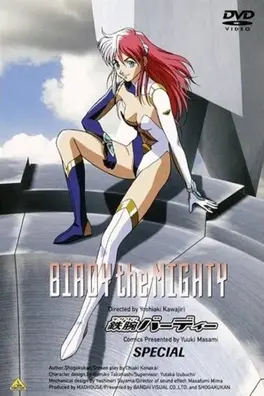
Not that interesting but it’s decent fun. The sense that there is some sort of gender happening is amplified by the fact that Birdy and Tsutomu’s faces are identical and I am glad that Hayamiya is supportive. The first and last episodes stand out in terms of moments of animation with the smooth transformations of Birdy and Geega in the former and I love the sheer joy on Birdy’s face when she’s kicking arse in the latter.
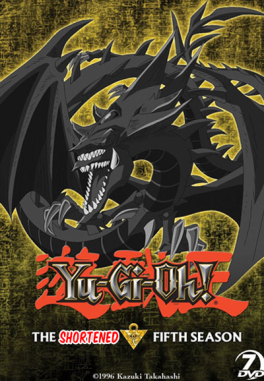
Bakura was really fucked over by adaptation, wasn’t he? Because of filler arcs he’s been gone for over fifty episodes and I don’t know how many episodes ago it was that he put part of his soul in the Millennium Puzzle. Then the big final arc then establishes his threat as the true main villain in much the same way as his earlier appearances in the show: Repeatedly losing at every turn. His final shadow R.P.G. might also have been less jarring if his first appearance was as the Monster World guy instead of every season 0 element having been either excised or reframed in terms of Duel Monsters in this show. And you cannot possibly expect me to take seriously or care about the main villain suddenly announcing “Actually I’m some monster named Zork!” and then Zork turns out to be just a generic devil design with a dragon for a penis. Zork.
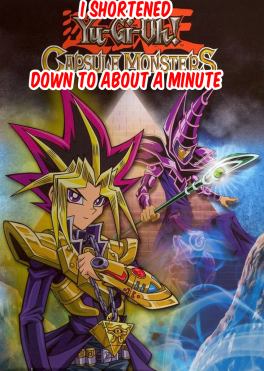
I had vaguely remembered this as feeling like a cheap cash-in where they were trying to sell a different game other than Duel Monsters1 but I had completely forgotten about Yugi’s Magnamon armour combining with monsters to create new action figure designs. There must have been toys they were trying to sell with this, right? These are such action figure designs. I am not going to bother looking up if that’s true or not. Also shoutouts to the Five-Headed Dragon jobbing the filler arc one last time.
As a child I was upset that the actual printed card game was actually called Yu-Gi-Oh! and not Duel Monsters. ↩
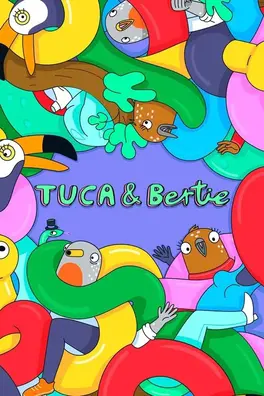
I continue to not have much to say about this show other than it was very good.
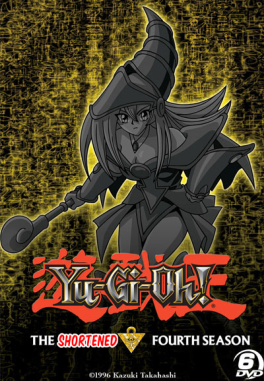
Yu-Gi-Oh! briefly takes a break from being weird about Egyptians to being weird about indigenous Americans.
Rebecca is a strange character. No one else in this show has aged at all but she seems to be twice as old as the first time she showed up. It almost makes her seem like a reasonable love interest for Yugi until you remember he is not actually ten and is meant to be the same age as the rest of the cast despite being half their size, making it all very weird.
Reviving some of that season zero darkness and Atem having to face the consequences of that before letting him go back to being more straightforwardly heroic for the finale I think really justifies this as being more meaningful than just a filler arc and I do love Kaiba being jealous that the pharaoh let someone else beat him. Some great Kaiba moments in general in this series. His continued insistence that magic isn’t real does start to strain credulity but I find it funny more than anything else and “Nah. As the president of a major corporation I have to [destroy people’s souls] every day.” is iconic. I was shocked that the editor cut that one short in this. One of the few editing decisions I fully disagree with. The U.S. navy escorting them to an aircraft carrier to tell the protagonists to go play a children’s card game is also great.
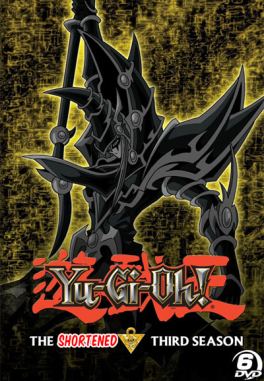
I don’t have the hatred of filler arcs that some do but it is very funny that they do a storyline of everyone getting trapped in virtual reality again and have to face off against the Big Five again who use the Mythic Five-Headed Dragon as their boss again. Deck masters are a cute idea it would have been nice if their rules made any sense but this is Yu-Gi-Oh! The more plotty side of things also has the benefit of focusing on our boy Kaiba. Back in the the Battle City finals the reversals in the Kaiba vs. Yugi duel were fucking ridiculous. I love this stupid show.
Nothing really new to say about the edited version other than it’s still a really fun way of revisiting things and also Egyptian god slime1.
Egyptian god slime. Egyptian god slime? Egyptian god slime! ↩
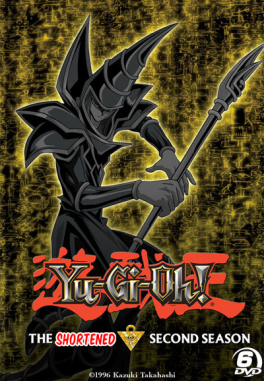
Battle city definitely feels like the definitive arc of Yu-Gi-Oh! It’s the longest running, it introduces the Egyptian god cards1 and the duels almost have consistent rules now. Even just watching back over edited down versions filled with gags I can’t help but get excited over the Mime Control duel being hype as fuck. I also love shit like such a huge deal being made of the Egyptian god cards1 and then making a big moment of Kaiba sacrificing Obelisk to summon another Blue Eyes White Dragon. It’s also funny looking at the attempts at censorship of the rare hunters’ Saw traps into shadow games and how I did not question it at all as a child. And the show itself still so funny in the deathly seriousness of it all. The announcement on the Kaiba Corp. blimp of “We have reached the official duelling altitude” absolutely sent me.
Battle City feeling like the most important part of the show does highlight how the rest of it felt a bit disappointing. Bakura never felt like a credible villain. He’s barely relevant in Duellist Kingdom and gets overshadowed and beaten by Marik here. And to have gone so hard on Duel Monsters to try to pivot back to ancient Egypt and general shadow games at the end was weird. But I’m getting ahead of myself now, that’s for a future review.
Setting aside my nostalgia for the show to talk about the jokey edited versions of the episodes I am actually watching: Bing Bong continues to make very fun editing choices: Leaving in every instance of the phrase Egyptian god cards1 and the rules of what Pot of Greed do, the general abrupt responses and abbreviated card names.
“Time to awaken the Winged Dragon of Ra by reciting the ancient chant! Please.”
Fun fact: Parts three and four of Friends ’Til the End were released on Game Boy Advance Video but parts one and two were not.
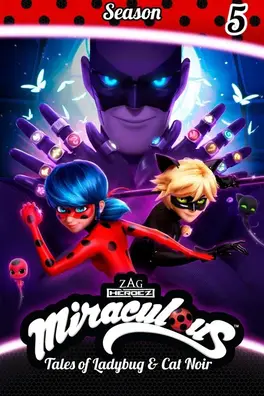
The fifth series was off to such a good start. Monarch, high on his victory in the previous finale, immediately returns to sucking shit and gets his ass kicked and loses the most powerful miraculous. And for a world-famous fashion designer who is this camp he is costuming is so, so bad. I love him. Other highlights this season were the episode that retcons that he was using the other time manipulation miraculous the entire time in previous episodes but is so bad at being a supervillain that all he manages to do is trap himself in a hyperbolic home for infinite losers and rapidly progress the crumbling of his body and the fact that his biggest, most evil villain speech in the show has nothing to do with being Monarch but gleefully spelling out the ills of the fashion industry to crush a girl’s dream of being a fashion designer.
But then the show does so much wheelspinning while teasing at an overarching plot that barely progresses before a very disappointing finale that feels like it is making everything up on the spot. Lila being this parallel mastermind (with a completely Flanderised Chloé being nothing but her patsy) which leads to her doing basically nothing but walking at the last minute, taking the butterfly miraculous and then seemingly getting it taken off her again in the stinger. Félix is a sentimonster I think? Or Adrien is? It is kind of an interesting idea but the exposition dump was so tedious to sit through that I zoned out a bit through it. And it has little consequence to the actual finale because Adrien gets completely sidelined and Félix just leaves of his own accord.
Adrien’s increasing willingness to try to kill people seems like it might have been going somewhere, especially with their powers getting unlocked towards the end, but it also doesn’t pay off and nothing is made of Marinette herself trying to cataclysm Gabriel as well. I did enjoy how the lucky charm immediately also becomes more violent and drops a piano on him and gives Marinette other weapons to hit him with. But then after all that, with the protagonist fully just trying to kill this guy now, we suddenly get the obligatory Gabriel redemption where he… wishes himself and his wife into heaven I guess? It’s dull. And then a press conference about making Paris solarpunk? So strange.
And then not only do they stills somehow not figure out each other’s secret identities but Marinette doesn’t even tell Adrien the truth about his dad at all so we can keep wheelspinning on this even longer.
I will keep watching but it definitely won’t be the same without failgirl in chief as the main villain any more.
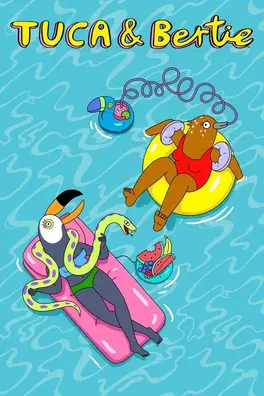
I thought I had seen the second series already but I don’t really remember most of this. Perhaps I had only seen one or two episodes? Great show, anyway.
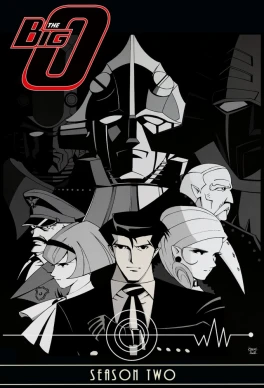
While the juxtaposition of the digital and cel animation was interesting in Roger the Wanderer it is hard to deny that the digital animation in the second series just looks so much worse when watching it in bluray quality. Every time they reuse footage from the first series it is a jarring reminder of that. I also don’t much like the new robot designs in the second half of the show. The New Batman Adventures to the first series’ Batman: The Animated Series.
I also think the more serialised structure doesn’t work as well as the earlier, episodic stories for the most part. But what the series does with that story is still really interesting. When I was younger I was much more wrapped up in what was “really” happening in the plot but coming back to it with more of an understanding of themes and even simply a stronger willingness to accept vibes-based storytelling it’s much easier to take in and consider the ideas the show is playing with beyond just the bare mysteries.
These people are trapped in a society built by people who even if they had known what they were doing are too senile now to understand it, ruled over by their petulant spoilt children who understand even less and believe they have inherited the right to redefine the world and who deserves to survive. A system that reproduces itself via the people trapped inside it who are acting in accordance to that system and don’t even understand it while trying to hold on to the idea of being independent individuals even as they are shaped and defined by these systems.
Is that what Konaka was going for? Probably not, but that’s art.
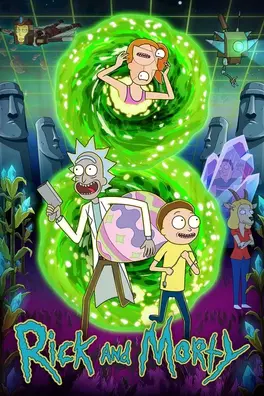
I actually have a pretty high I.Q. is the thing.
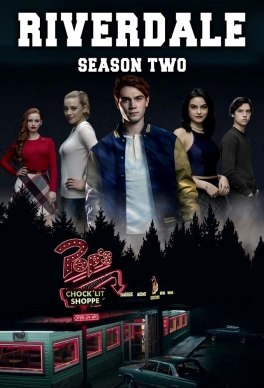
Fondly remembering all the ridiculous shit that happens in this show and telling friends about it made it seem like a rewatch would be fun, but watching it without the novelty of each new twist it just lays bare how utterly arbitrary and inconsequential everything that happens in this show is. Nothing matters. Every dramatic twist will be completely forgotten in two episode’s time and there haven’t even been any cults yet.
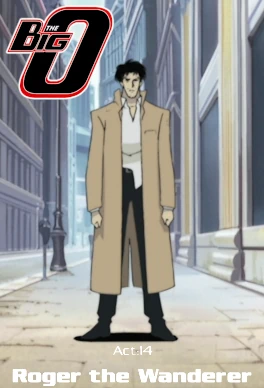
We start with cel animation footage of the finale of the first series interspersed with what are ostensibly flashbacks—memories—animated in the new digital animation of the second series. There’s a wrongness to this. A sense of a new reality being imposed over the old. There are false memories - retcons. Speeches from characters who never gave them before. Dastun suddenly knows that Roger pilots Big O. He already knew. He always knew, perhaps. Though he definitely didn’t know last season. Everything has moved over to the digital animation now. The priorities of the story are realigned. Everyone is concerned about people from outside of Paradigm City, a mystery which the newly more serialised story is going to focus on now. Roger starts to unravel and wakes up in New York and meets the gargoyles from Gargoyles. When he returns to Paradigm reality has shifted enough to set up for the rest of the show. The parts of Big Fau exist smuggled inside the foreign megadei so that the E.U. can avoid paying tariffs and the Joker exists now.
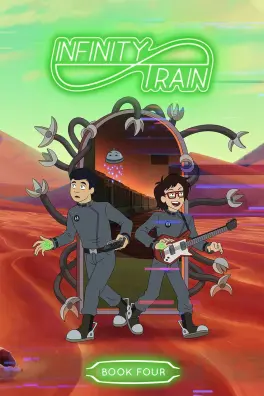
I had unfairly filed this away in my memory as the worst series, which is technically true, but only in so far as the other ones were phenomenal and this one was only very good. It’s a shame that this did not continue Hazel’s story and only gave us a glimpse of Amelia’s. I hope the series can be revived eventually.
Setting aside that disappointment, I really like Min-Gi and Ryan and how unapologetically Canadian it is. Refreshing to watch something not assuming a perspective of the United States. I also learnt that they use the word runners (for trainers/sneakers) in Canada too from this season. I thought it was just an Irish thing.
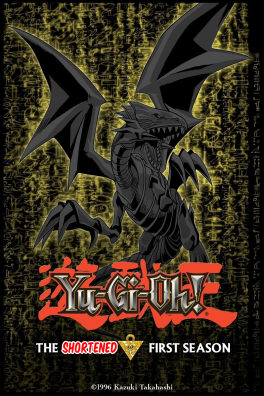
I have a great fondness for Yu-Gi-Oh! but I don’t think I could ever revisit it. Much like the prospect of replaying Pokémon I just don’t think I have the patience as an adult to put up with how long it is and how little happens. Cutting down each episode into a rapid-fire barrage of plot beats, memorable moments and gags is a fun and efficient way to bask in some nostalgia without having to actually watch a hundred hours of playing a card game.
What is fun about coming back as an adult, is seeing the ridiculous way Duel Monsters is treated in-universe. I don’t even mean how deathly serious everyone takes it, I mean how unseriously they take it as an actual competitive game. None of the top players in this game know how any of the cards work! They are continuously surprised by their opponents decks and don’t know what anything does (though, in fairness, none of how any of the cards work in the first series makes any sense whatsoever). Everyone is so incredibly bad at it. Yugi is apparently using the exact same deck that his grandfather used to play with years (decades?) ago and he wins the biggest tournament in the world! Pegasus being able to read his opponents’ minds wouldn’t be half a good as a cheat in a real competitive card game where you probably know what your opponent’s strategy is, but obviously here everyone is making it up as they go along.
Speaking of Pegasus: While everyone drawing the exact cards they need at a given moment and always drawing convenient combos together is table stakes for the whole show, the fact that his deck goes through a full JRPG boss phase transition and obligingly starts giving him creepy cards instead of cartoon-themed ones once he evokes the Shadow Realm is amazing. Does not make any sense if you think about it at all but it’s all in service of the atmosphere.
Bing Bong’s editing is also very funny itself, with the overly abrupt responses, fixing Monster Reborn and the friendship (friendship. Friendship, friendship) episode.
Other random observations: Kaiba’s theme fucks immensely and Joey being forced to be a dog happens earlier and more persistently that I remembered.
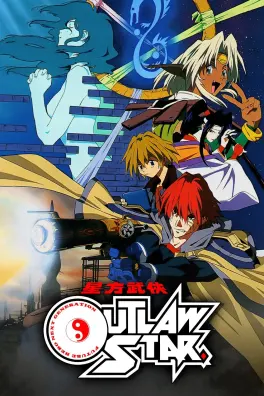
I am more fond of this show than it deserves but it’s gorgeous, has a fantastic theme song and has Aisha Clan-Clan in it. I do not know what Lenore Zann is doing with her vocal chords but her performance is fantastic.
It’s most glaring problem—other than the general misogyny—is that the more the plot actually starts to happen the worse the show gets. Thankfully the show avoids that for most part. The main villains only get introduced in episode fifteen of twenty six and proceed to do very little for the rest of the show anyway. Gene still doesn’t even know who Hazanko is when he meets him in the penultimate episode.
The female cast is generally underserved too. Suzuka is interesting, gets defeated in a bullshit way in her first appearance, and then quickly settles into the background before suddenly getting a boring tragic backstory at the last minute. Melfina could have had an interesting character arc if the show had more interest in her beyond being a source of secondary angst for Gene when he’s not trying to sexually assault her. But on the other hand, Aisha Clan-Clan.
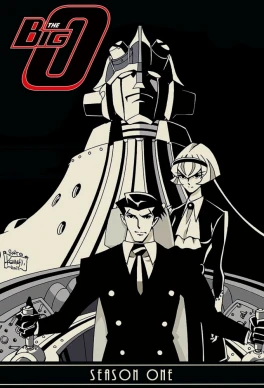
Impeccable atmosphere. Moody, gorgeous. It has R. Dorothy in it. What more could you want? The wider lore stuff doesn’t exactly come out of nowhere in the last episode but it certainly feels like the show is trying to rush through it because it doesn’t have any more time. An old man we have never met telling us that the secret history of the metropolis is fake before quickly summarising it for the audience who hasn’t heard it before certainly seems like something that should have played out over several episodes and not a single minute. Still, the finale throwing out as much intrigue as it can at once probably helped the show get eventually renewed.
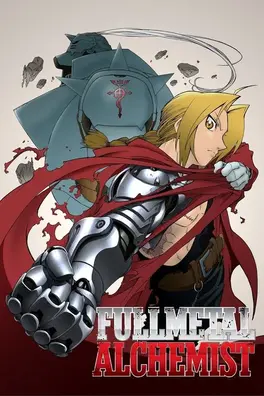
It’s really interesting to compare this to Brotherhood. They look so similar and have in large part the same core cast but a different musical identity and of course wildly diverging plots. Many of the same scenes play out but in a different order, in a different context, leading down a different path.
I find looking at different interpretations of the same story and characters interesting and it’s especially fascinating here with so much of the same cast. Vic Mignogna nails Edward from the start, while Travis Willingham as Roy definitely takes more time to get his role down. There’s a noticeable improvement between Mustang at the start of 2003 and the start of Brotherhood. Colleen Clinkenbeard gives a pretty different performance as Hawkeye while Laura Bailey’s Lust is voiced in the same way but ends up having to play a wildly diverging character. Alphonse you could almost be convinced is the same actor in both but characters like Scar and Hohenheim just feel wrong.
And it’s fucken good! It’s no Brotherhood: It’s weirder, it’s edgier, it’s messier, it’s much more casual about logistics and coincidences but it’s good. And I forgot how much I liked Wrath in this.
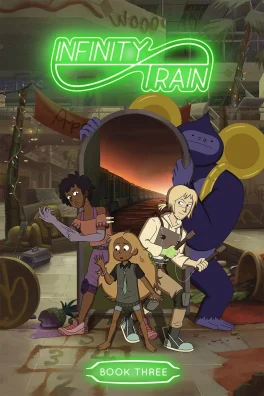
When I watched this show originally I thought that that third series was not as good as the first two. I certainly didn’t resonate with it as much as I did with the second series as an angry trans woman early in my transition. But this one really hits home a lot more with me too now, and not just the funeral scene making me sob while I am still grieving and so, so tired. The grooming, the two-facedness, the people willingly ignoring everything in front of them and revelling in making themselves worse. It’s a little sickening to watch in a great way. It is such a shame that we didn’t get a series focusing on Hazel afterwards.
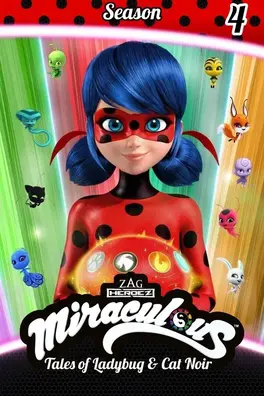
This show has really wormed its way into me to the point where I’m second guessing whether I should have rated the previous series higher and I was too embarrassed to. But also it has vastly improved over time. It has gotten more complex since the purely monster of the week structure of the first series as well as funnier, more self-aware and much more queer, though the queerness remains strictly subtextual.
I love Gabriel Agreste and Chloe Bourgeois, they are such messy bitches. Chloe has ridiculous (utterly ridiculous) shōnen anime protagonist levels of willpower to break through any barrier and uses it only for drama. She was the first person to shrug off akumatisation and now that she has relapsed into a brat she openly invites Shadow Moth to give her superpowers when she wants them and then just breaks her own akumatised totem when she feels like it. It honestly reminded me of Vegeta and Babidi of all things. She is the one using Shadow Moth now.
The shows disposition to tease shipping and forward plot progress and and then undermine itself is still annoying, though. The forth series wastes no time in immediately breaking up the protagonists from Kagami and Luka and we get another episode dedicated to showing an alternative timeline to Marinette and Adrien learning their secret identities which immediately results in him getting evilised and the world ending.
Any rules or limits on how powers work seem to be completely thrown out the window at this point, too. The transformation time limits stopped mattering to the plot a long time ago but now we just have, playground-like, Ladybug making up the power to make anti-evil shields and Shadow Moth saying that well I can make super-hyper-mega butterflies that can break shields and also that multiple people can be akumatised at once and people don’t actually have to be near the thing that gets akumatised at all (one wonders why he ever does it objects people are carrying at all), and, with the power of the peacock miraculous, he can just make up a guy to get mad at something so he can evilise them! But he is also so, so endearingly bad at being a villain that his most successful plan does not exploit any of this but just relies trying his luck and hoping Ladybug makes a really bad mistake, which she dutifully does. Good for him. He needed a win.
Also Simpleman was so fucking funny.
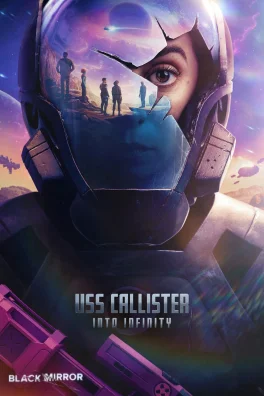
I enjoyed the contrast between the Star Trek Discovery aesthetics of the main cast and the garish MMO player cosmetics of everyone else.
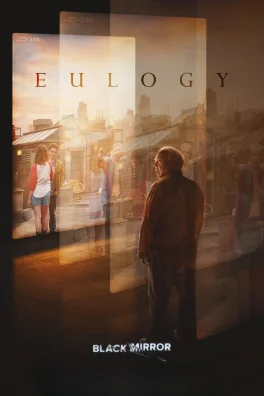
Easily the best episode of the seventh series.
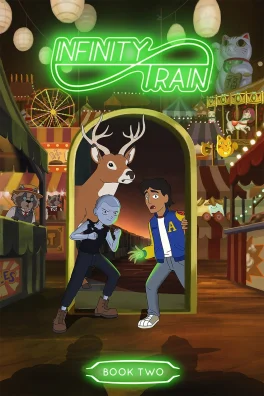
This series gets me genuinely anxious watching Lake’s struggling to be seen as a person, as someone separate from Tulip, as not some broken version of her past. It’s trans as hell.

Actually enjoyed this a lot more than the first series. I like how much it is just leaning into being silly with it. I loved the school episode and it highlights how the show just has interesting and deliberate direction and camerawork with how when we spend time in Stephanie’s perspective the camera comes down to her level into the world of children which has a warmer colour temperature with adults out of focus and only shown from the neck down (and then a fantastic cut out of it near the end when she’s running down the hall).
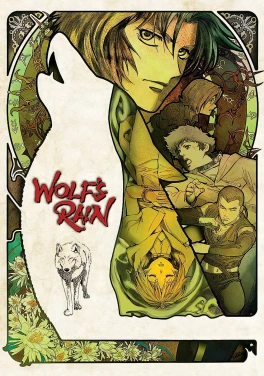
I had never heard of this show before but it was really important to my girlfriend Ellie when she was growing up. We had been watching it together and we were about half-way through the show two months ago when she died suddenly. I am never really going to be able to emotionally separate the show from her and watching the last few episodes really emotionally destroyed me. The world has ended but we need to keep going.
I do think the show drags a bit in the middle, even ignoring the SARS production issues-induced recap episodes. Being moody and slow paced is fine but the characters feel very static for much of it.
One aspect I really love is how they handle the depiction of the wolves with their human and wolf appearances—fluidly moving between showing them as either depending on what the show needs to communicate at any given time, showing what certain people are seeing or just using the human illusions to let them emote more and punctuating dramatic moments by dropping it.
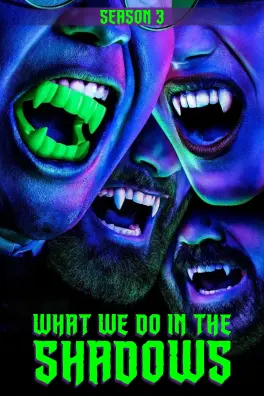
I was watching this show with a partner who moved abroad in 2023 when we were a couple of episodes into the third series. Finally finished it with them while they were visiting this week. It’s still really funny but the resentments festering with the characters is starting to feel a bit too real to the point where I really want a future series to have some emotional catharsis. Collin Robinson has also developed in a weird way that I am finding difficult to put into words. It feels like he’s developed more as a character but also that while the way he was offputting and annoying as a way of feeding has just turned into him being offputting and annoying as a person. I am not sure I would have minded if they had actually killed him off.
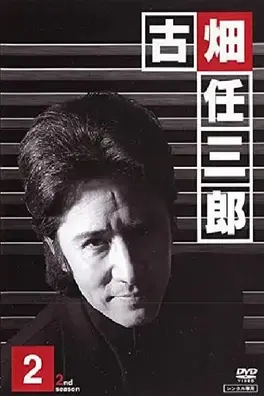
Great episodes in this but I think I consistently enjoyed the first series more.
Columbo is a bloodhound, he catches a whiff of something wrong and doggedly pursues the murderer teasing out every detail, taking his time, until he finally corners them. Furuhata is a sly fox and more concerned with being clever. This show is much more interested in the big reveal of how Furuhata catches people, it even devotes a soliloquy every episode into teasing it, which means that whether an episode lands or not depends a lot on if that is satisfying or just comes across as contrived.
I also think they are leaning far too heavily into Imaizumi as a very weak source of comic relief. I just don’t find the degree of cruelty towards him funny or how ridiculous he himself gets. The last episode, despite otherwise being pretty good (I enjoy them having the big we’re going to America! episode for the finale and then have it being possibly the cheapest one of the whole show, mostly just being two people talking on a bus) was marred by its dreadful Imaizumi-focused B-plot.
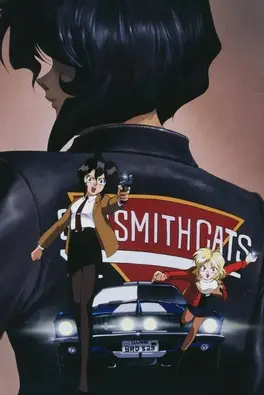
Dumb but pretty to look at (like me).
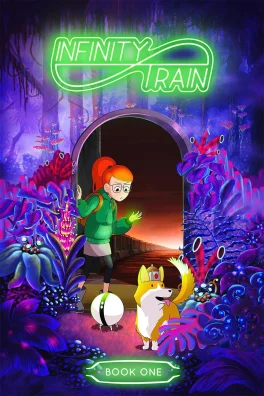
I love how angry and selfish Tulip is, how she is so focused on figuring out the train’s character development-based points system but can’t because the way she has tried to close herself off from feeling things because it’s too painful and would never want to consider that confronting her feelings is the whole point.
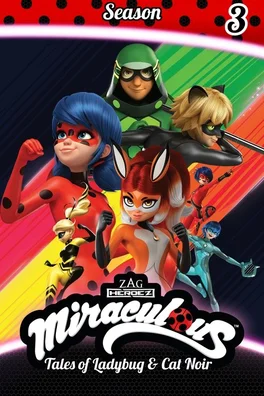
The show actually having a plot in the second series was a novelty but it quickly settles into a frustrating rhythm of teasing some actual forward development and then pulling immediately back. No one is ever allowed to really learn any new information as the overlapping secret identities is too much part of the central premise. If they ever do it will literally cause the apocalypse. Mostly all we ever really get is the occasional new toy1 as distraction.
Still, it’s fun. I really enjoy how much of an absolute freak Gabriel Agreste is and I don’t think a rich, famous fashion designer intentionally engineering situations to piss off a bunch of teenagers and their parents so he can evilise them will ever stop being funny to me. Also Kagami autistic as hell.
superhero transformation ↩
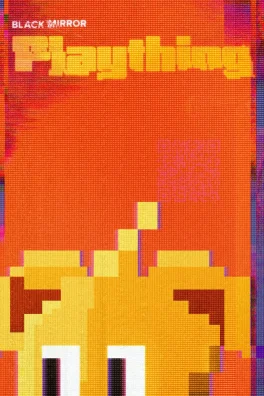
I thought this one was cute. Peter Capaldi is a great actor and I love watching him and I enjoyed the nods to Charlie Brooker’s early career in games magazines. The degree to which the cop is personally offended by and furious at this weird old man who is, while scattered and rambling, rather co-operative and happy to admit to his crimes, was also very funny to me. I do think the premise ends up being surprisingly shallow, but I shouldn’t really be surprised about that from Black Mirror at this point.
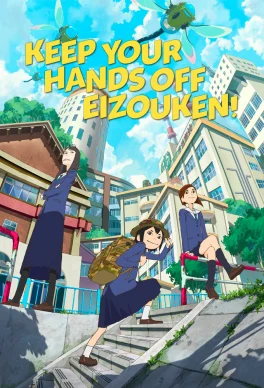
Just a lovely show by and about absolute weirdos who love animation. I really enjoy how much of the plot is them figuring out they can reasonably cut. Also really impressive job with the subtitle layer covering everything from annotating street signs in a naturalistic way to all of the margin notes in Asakusa’s sketchbook.
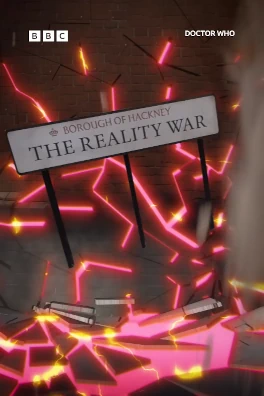
The technobabble and lore wank is even worse here than the previous episode. The Doctor talking about the Bone Beasts from the Underverse is so painfully flat compared to the much more to the point description of the actually-conceptually-very-similar monsters from Father’s Day. Kate all but calling out “Omega, he’s a thing from the ’70s!” to the audience is pathetic1.
Is the Time Lord infertility from whatever the hell the Dhawan Master did? Who knows! The deftness of handling and recuperating elements from Chibnall that was present in the
When we get through all of that and the Doctor shoots the Binding of Isaac boss giant monster corpse baby that we are calling Omega with a big laser we get back to things that Davies is better at: The big emotional melodrama. This is still a mess (apparently not helped by a lot of last-minute reshoots so Gatwa can leave) but it’s a more compelling mess.
It was hard to tell what the hell they were doing with Poppy initially. The heterosexuality enforced by the wish world on the Doctor felt so wrong and it made him and Belinda pushing to keep Poppy so much come off as unsettling, especially just before Poppy disappears when they are acting so couple-y. Anything that is making Gatwa’s Doctor act straight cannot be right.
I think with the flashback scenes where they insert Belinda talking about getting back to Poppy in the context of previous episodes we are meant to understand that what we are seeing there is the “correct” timeline. That Poppy always existed and was always Belinda’s daughter and that her disappearing was not reality reasserting itself but one of the glitches like the border between Norway and Sweden moving and we have been seeing that glitched version of reality for the whole series up until now. That her demanding to get home at a particular date is meant to be recontextualised as always having been about Poppy.
But it’s as hard to swallow that as it was hard to swallow the Doctor acting so straight: Belinda as a mother seems like a different character who has been swapped in. She seems like she has been overriden by this new woman who only talks about being a mam. Maybe if she had been developed more as a character it would have allowed a sense of continuity to shine through but it comes across as the Doctor having semi-Stepford-wifed her by shooting magic sparks into the TARDIS.
Whittaker getting to be in a scene that’s good was a nice novelty and while it was certainly not the intent of the line I did laugh at little at the knife being twisted in the Thasmin shippers’ wounds again.
And well I guess the stuff with Susan went nowhere again. Maybe the Bad Wolf Doctor will meet her if that actually gets its own series.
I know there is an element of Davies probably including that line because of the whole UNIT dating debate but that is also stupid lore bullshit that doesn’t matter. ↩
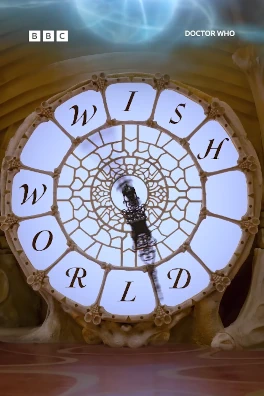
There is a lot of fun here but most of fails to link up or go anywhere. I like the wrongness of jolly fascism land the way it is limited by Conrad’s perspective. The disabled being able to leverage their invisibility as a strength in order to tear down and kill God is wonderful! It is a shame nothing like that actually happens and that grand statements results in them sitting in a square and watching a tablet while waiting for the cliffhanger to happen. Rose being absent because Conrad cannot even comprehend trans people feels a bit of self-congratulatory cleverness about erasure of trans people that still ends up erasing trans people itself but honestly Yasmin Finney is the weak link of the UNIT cast so I don’t particularly mind her being absent (though I would prefer if UNIT itself were more absent from the era in general).
Similarly the mugs falling through the table is a cute visual that is beautifully mirrored in the cliffhanger by the bottom just falling out from under reality itself but is very transparently just serving as the big “oh no it’s the cliffhanger!” scene with little else to it after the wind has already been taken out of the sails by ten minutes of dull technobabble and the show wanting you to clap like a trained seal whenever some shite from the ’70s is mentioned. I have seen The Three Doctors and even I don’t give a shit about Omega.
Other small comments:
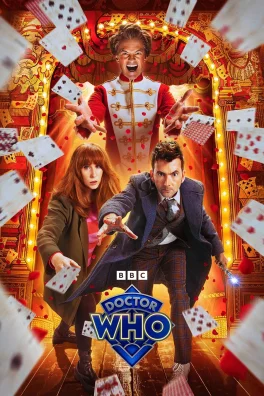
Like many of Davies’ big episodes each act does feel very disconnected, with the initial big problem of the eponymous giggle not really mattering at all after the source of it is found and everything in the back of the toy shop just sort of happening. Does feel a bit like an old serial in that way I suppose.
And then everything kind of gets swept away for the bigeneration and getting Doctor Who into a therapy programme, which somehow actually manages to land. The ball game is a bit naff but introducing Gatwa in this absurd way, with his self-assurance and energy contrasting with Tennant playing a Doctor who has been worn to the bone by everything he has gone through is great.
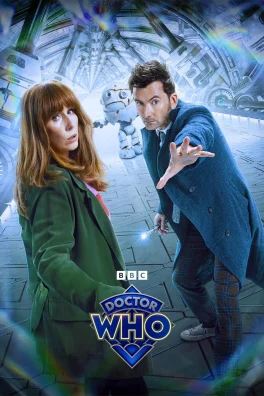
I do love Tennant and Tate in this. Wonderful acting for them in all four roles and it manages to really thread the needle of taking elements from Chibnall’s shitass lore, salvaging some core emotional beats from them and using them in interesting ways while glossing over the asinine details.
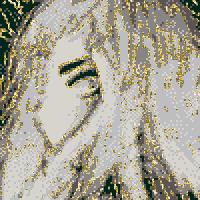
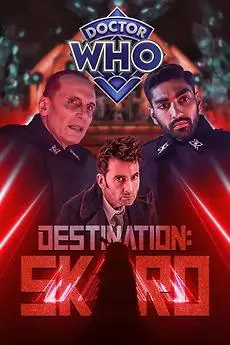
Basically the same humour as the opening of Wild Blue Yonder but about Doctor Who history instead of real history.
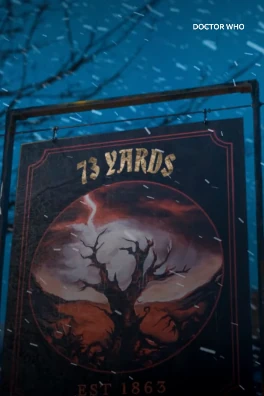
Weird as hell. Much prefer this view into magic as inexplicable and horrible than the pantheon stuff.
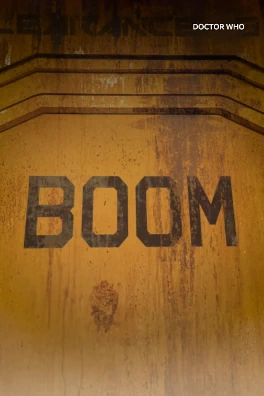
Very much Steven Moffat taking a grab-bag of elements from his previous script and throwing them together. Does fall victim to the era-long problem of somewhat unsatisfying ending. It feels like it is relying on you having seen similar stories in the show before to fill in the gaps rather than coming together really neatly like many of Moffat’s episodes do.
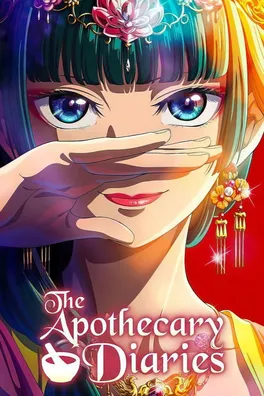
The premise is good and it looks great and maybe I was in an uncharitable mood when watching it but the first episode has completely turned me off the show. I have very little patience for internal monologues and narrations recapping things that just happened and shows generally treating the viewer like completely gormless fools who can’t be trusted to actually watch what is happening. The humour is also awful and I was particularly annoyed by the tired, leery jokes about big tits when the beauty standards of the periods this is based on were literally the opposite to the point where breast binding was practised.
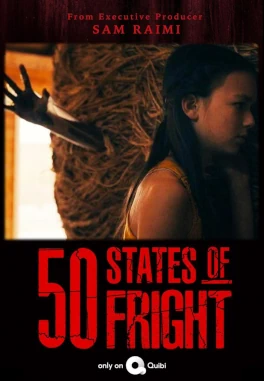
Sadly they can’t all be a The Golden Arm. This is not so bad that it’s good it’s just rather bad.
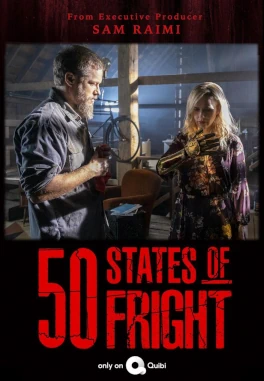
This story is the most entertaining of the entire anthology. They absolutely put their best foot forward. It’s so fucking funny. The wife with no redeeming qualities who would rather die than just take the arm off, the husband destroying their entirely livelihood to give it to this completely unreasonable, self-obsessed woman, him hiding under his blanket from her and the fact that that actually seems to work because she only attacks him after he takes it off.
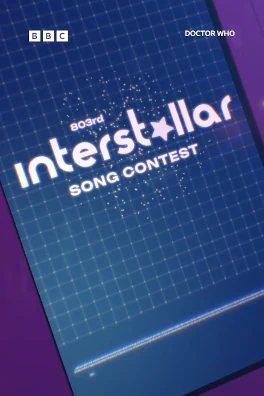
A lot to like and hate here. It is very hard to look at this and not read it in terms of Palestine and as much as I love that there is a trans woman writing for Doctor Who it’s not surprising that the woman who also wrote The Good Doctor (where the Doctor berates a slave uprising for being too violent) comes out with a story that has the ultimate resolution of a genocide being that a woman sings very beautifully about how sad that makes her and little else. The Doctor going absolute psycho and that being so quickly walked back with everyone being absolutely sycophantic to him afterwards is all the more disturbing for the fact that it doesn’t seem like the sycophancy was intentionally written as disturbing.
On the good side, well, it was fun when it wasn’t horrifying and Varada Sethu’s delivery of “IT’S RYLAN!” had me in stitches even though I did not have a clue who Rylan was (which my friend who I was watching it with found very endearing).
Mrs. Flood being the Rani is whatever. Pretty dull resolution to that. We’ll see where the stuff with Susan finally goes.
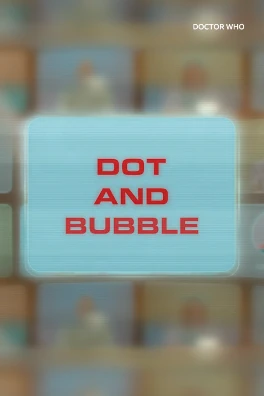
On a rewatch this is still a great episode but some of the less well developed parts of do stand out. “It’s in alphabetical order” is a very dull reveal for how much the question of why the sinister mister sloogs are not eating certain people gets repeatedly emphasised by the Doctor. It could at least have been in order of subscriber count or something so they were picking off people who wouldn’t be missed first. Homeworld being also wiped out is glossed over so quickly in the episode to perhaps stop you from considering that that means that all the poors and minorities were also wiped out because rich people were annoying on Instagram.
One thing I think about this episode is how so many previous Doctors and previous versions of this show would see a bunch of racist rich kids go off to get themselves killed in the wilderness and would not only have not realised they were racist in the first place but have wished them well and waffled on about how wonderful the human spirit is. It’s not hard to picture Tennant or Whittaker’s Doctors smiling and waving them off and talking about how humanity always keeps going and how wonderful their new colonial project will be.
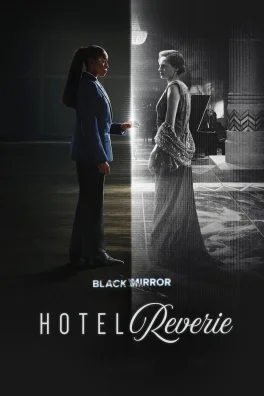
Wish they had leaned more into the farce of it early on and then further into the horror when Dorothy gets erased. Feels like the weight of that gets lost with Brandy just going numb and trying to force her way through ending the movie.
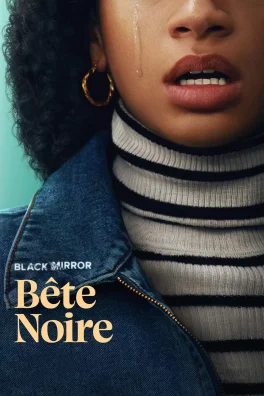
I unfortunately had an inkling of the premise going in so didn’t get to experience the mystery, but the building tension of it was still fun and I love how it starts subtly and just becomes more clearly malicious as it goes on. The milk scene is great. Ending was fairly naff, though.
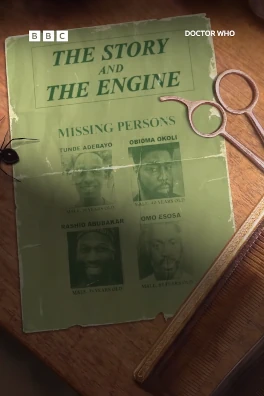
I think this is my favourite of the series so far. I think it does have a lot of problems—the story feels like it’s jumping around between things that don’t gel well with the more sci-fi-y elements clashing with the storytelling theme, the cast of the barbershop are not fleshed out at all other than Omo, Belinda suddenly being so at home on the TARDIS now that she is knowingly laughing along with the Doctor about hanging out with the gods and spouting technobabble.
But it is bursting with charm, throwing out a lot of great ideas and manages to be more than the sum of its parts. I like the Doctor setting down some roots on Earth (and not just in England) and then feeling betrayed that he is still seen as this outsider spaceman, the emphasis on storytelling and exploitation and commodification of it and how the African oral tradition doesn’t fit easily into that. Though it does feel a bit backwards then in the end that the engine is overloaded by the weight of the story of Doctor Who the television programme.
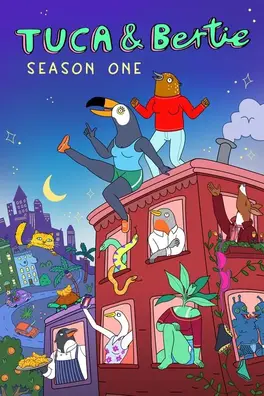
If Bojack Horseman does emotional whiplash this show just slams you into an emotional brick wall with no seatbelt.
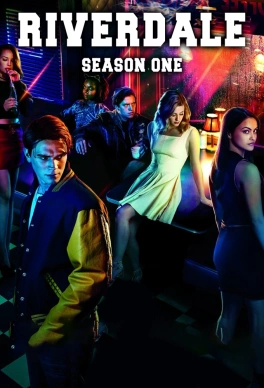
Somehow I had convinced myself that the first series of this show was serious. That there was real mystery and drama. That it’s not till later in the show that everything starts going off the rails. But no, it was forever thus. Every character in this show is unhinged in their own unique way. I love Cheryl especially. She is a force of nature, utterly divorced from sense or reason.
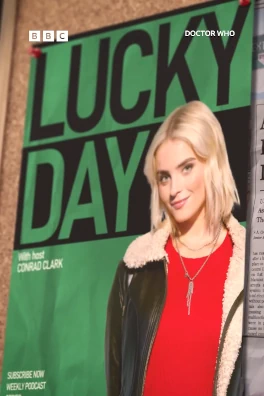
Quite enjoyed this one. The dodgy politics were mild enough to leave just a little bit of a bad taste in my mouth rather than send me into a bloody rage like with Kerblam!.
There is a very abrupt gear-shift half way through, but I enjoyed both Ruby trying to deal with her trauma and the conspiracy theory grifter shithead angle. I think the way that Conrad will immediately shift back into denial of reality rather than learn a lesson is astute. The worldview of a conspiracy theorist is one that justifies a desired conclusion more than anything else. He is not going to drop that over a little thing like his arm being bitten off.
That said, this episode falls into the trap of countering anti-vaxxers by uncritically aligning with the monstrosity that is the pharmaceutical industry. UNIT clearly is a nepotistic military hierarchy that operates opaquely and above the law. Kate Stewart is portrayed as going a bit too far here, but in a way that we are meant to take some naughty satisfaction in. The episode says that UNIT is necessary, and thus above any serious reproach. It is the quiet, acceptable authoritarianism of that free-floating quote that gets attributed to various famous, dead men: “We sleep soundly in our beds because rough men stand ready in the night to visit violence on those who would do us harm.”
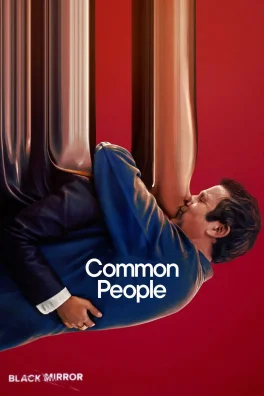
Pretty much exactly what you’d expect from an episode of Black Mirror about subscription service platform decay, though it doesn’t do it poorly.
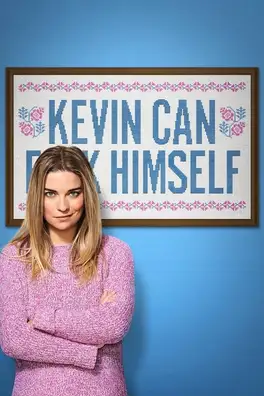
I wish I could rate this higher. The central idea is extremely good and for the first few episodes I was really enjoying the contrast between the sitcom and drama scenes and in particular what the multicamera perspective, sets and lighting obscures. The plaster on Allison’s hand that’s barely visible under the sitcom lights but stands out as soon as she’s away from Kevin, the mess in their bedroom stuffed up against the fourth wall that is invisible to the sitcom cameras.
But as soon as the third episode I thought that it was missing opportunities to do more with the central gimmick (I was surprised there wasn’t a big jump-cut involving that spit-roasted pig) and how it relates to Kevin’s abuse. There are still interesting things done with it throughout the show, but it feels like it’s drowned out by the escalations of the more crime drama plot that takes off and takes over.
The show, outside of the faux-levity of the sitcom, is also dour to the point of its own detriment. There is (dark) humour there and obviously people being miserable in their general situation is part of the premise but there is, for instance, so much tension in every scene with Patty and Tammy that it’s hard to understand why Tammy is sticking around at all. They never seem remotely comfortable around each other on screen.
It does pick up again towards the end—Kevin finally letting the mask slip is great—but the whole thing feels like it could have been a great miniseries that got padded too long.
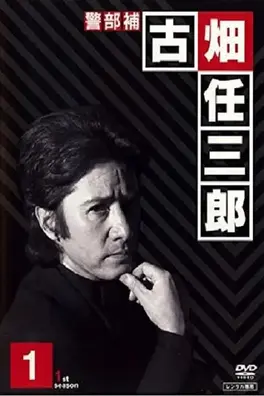
Fun take on the Columbo formula without just being a copycat. I enjoy how much of a smug prick Furuhata is in comparison. Cases can be a bit inconsistent, relying on some real logical leaps or assuming absurdly specific behaviour from people. It’s a good thing the killers always confesses at the ends of these types of shows because it would be difficult to build a case otherwise. I enjoy the stagier touches: Furuhata’s address to the audience as the lights go down before the final act and the credits running over a shot from a fixed, wide vantage as the murderers are taken away.
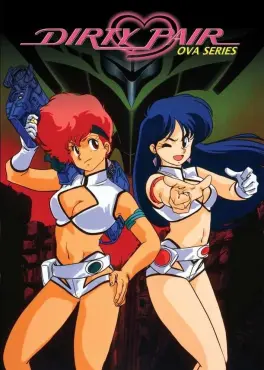
Perhaps I just had had my fill of the show already but I felt this didn’t have the same energy and fun as the main TV series. The silliness does seem to have been toned down a little. Nanmo isn’t here and both the spaceship and 3WA headquarters have been toned down into something a bit more typically scifi and the plots seem to come down to straightforward shootouts a lot.
On the positive side Kei and Yuri seem to actually like each other more now, their jabs at each other more frequently feeling more like teasing than actual meanness and doesn’t devolve into them just shouting at each other. Having a couple more recurring characters in the 3WA is fun to have too.
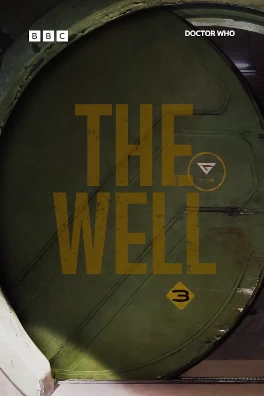
I think I am holding Doctor Who to a higher standard for these ratings than I would for other shows. I am giving this one a higher rating to the last two but I have been a bit disappointed with how every episode has gone this series so far. I was pretty drawn in at the start but it lost me in the middle a bit.
It making itself a sequel to Midnight distracted me from the actual episode a bit and made me keep comparing it to that (and sets itself a really high bar to clear) and the scene immediately following that where half the squad gets chucked around the room just felt a bit silly compared the the really good building of tension and camera work just a few minutes prior.
It does regain its footing towards the end and though I could nitpick further I don’t think it does anything too bad, though I’d prefer it hadn’t tried to show a proper physical depiction of the thing at all, no matter how dark, distant and blurred. The suggestion of a flash of motion behind someone and the little shadow creeping over Aliss’ shoulder was more interesting.
Actually one last thing that was interesting and I hope was deliberate is how shitty everyone, even the Doctor, is about casually excluding Aliss, reflexively turning off their subtitles whenever they aren’t directly talking to her and the Doctor repeatedly forgetting to sign to her even when he is. But it does feel like a dropped thread and reminds me of how some people thought Belinda’s reaction to the Doctor treating her as a curiosity might be her seeing him is a similar light to Al after The Robot Revolution, which does not seem to have gone anywhere. Perhaps Davies will surprise us and have a callout of the Doctor’s instrumental treatment of people despite his outward performance of care and kindness later in the series.
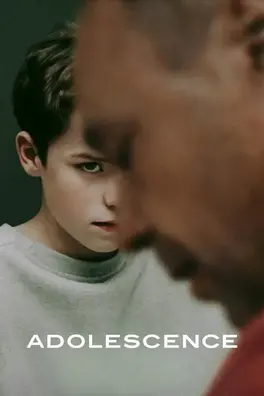
Brutal. The first and third episode especially are incredible. I always adore the single-cut style and this is four episodes of it executed to perfection. The way it grounds you and and focuses you on the characters, on their reactions and emotions at all times. The choice to not always show you what people are seeing but on how it affecting and the phenomenal acting to sell that so perfectly. The use of the sounds of the rain in place of a soundtrack in the third episode was really great too. Absolutely enthralling.
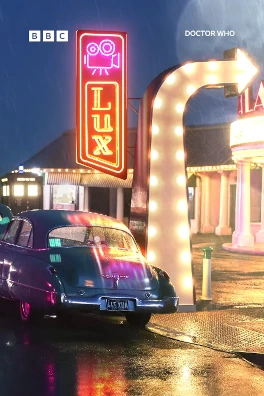
Better than last week but still feels like a jumble of ideas that don’t come together very well.
In The Church of Ruby Road I really liked the goblins. I enjoyed Doctor Who just unselfconsciously embracing silly fantasy elements and I wish that Mr. Ring-a-Ding had that same air of playfulness to it. That he could have just been a weird cartoon man that operates on his own set of rules and motivations and not tied into this set of gods that are increasingly bogged down by their own set of signifiers and rules. It seemed like the show was expanding the boundaries of what it could do and be but it also seems scared to keep going. It has pulled back and made a new box for itself to sit in. The rules only get broke in a specific type of episode with a specific formula and that formula is having diminishing returns for me. Or I am just judging this series too early. We did also have 73 Yards last year as well so there is hopefully weirdness still to come unrelated to this pantheon. That said it does seem increasingly likely that Mrs. Flood is just going to be one of these gods as well, which I will be very disappointed in if it turns out to be true.
Other thoughts: I love Belinda in this episode and I am also disappointed that she seems to have fully gotten over her doubt and worries about the Doctor by the end of the episode. It seemed like there was going to be a more interesting dynamic there that seems to have been closed off now. The bit with the fans was sweet and only a little bit annoying. I enjoyed the subtle self-deprecating humour of Davies holding up Steven Moffat as the better writer, both in making everyone’s favourite episode Blink but also having Gatwa’s Doctor thinking that Boom is his best adventure so far. The Doctor and Belinda being turned into cartoons was disappointingly slight and I rolled my eyes at the Doctor supposedly being given depth by him repeating the last of the Time Lords title, something from two decades ago at this point that Chris Chibnall’s tenure on the show has reset us back to.
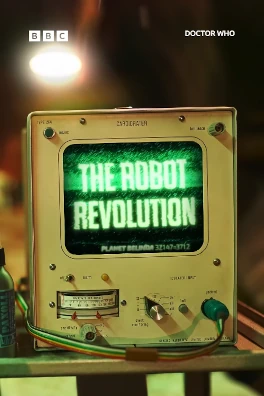
A lot of cute ideas here but it doesn’t really come together. The mid-century pulp sci-fi aesthetics, the idea of taking the star certificate seriously and Belinda herself are all really fun. The every ninth word idea is cute but only matters at all for two scenes and the incel comparison just comes out of nowhere. Al really needed more characterisation for the one scene he was in at the start for that to work. And another big deal about a character being played by the same actor as a previous one or even just another mystery around a companion in general is a bit tired at this point. Hopefully like Gatwa’s first series this will improve as it goes on.
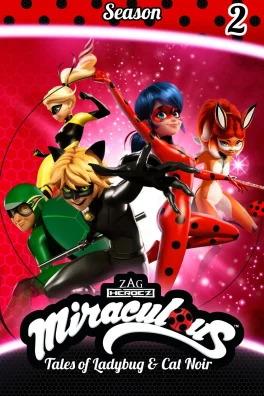
It’s so strange to come into the second series and immediately there is actually a plot! Characters learn new information! It is still mostly monsters of the week and it repeatedly pulls back when it looks like the story might advance in more significant ways, but it is less of a show for babies. I am getting into it the more I watch it. Partially is just layering more injokes with my partner as we watch it. Every time there’s a new hero transformation we shout “new toy!” at the television, we fistbump whenever the characters do. I also laugh every time at the face Hawk Moth makes during the transformation sequence he occasionally gets now.
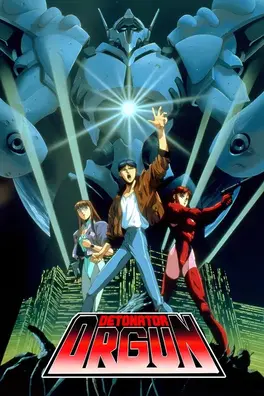
I watched this with a friend who wanted to see it because the soundtrack was composed by her favourite musician. Confusing when it’s not being generic and a boring protagonist who is introduced to us in a dream where he is wearing a Luftwaffe uniform. Occasionally interrupted by in-universe ad breaks just to muddy the waters of what’s happening even more.
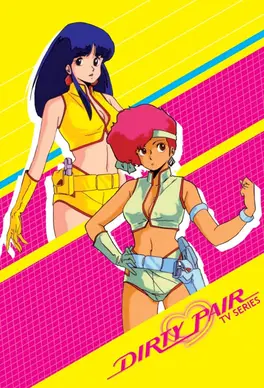
The core concept of hyper-competent mercenaries with the personalities of teenagers is fun and works quite well when it doesn’t veer too much into them calling each other too fat to attract a man. Episodes vary a lot in tone and concept with some clear winners and losers but it’s never boring and usually not as misogynistic as it might look on first glance.
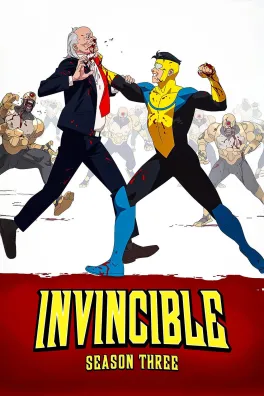
The first series of this show felt so deliberately constructed, with a specific tension hanging over the whole thing with occasional bursts of extreme violence with specific purpose. It no longer seems like it knows what its doing, throwing Mark between suddenly contrived moral choices while casually painting everything red with guts at every turn. It seemed like it has some point to say about superhero stories before and now it is just throwing in random teasing of future threats and multiverse doppleganger shite that feels just like Marvel movies with more gore where everything ends up coming down to who can punch biggest or do a fancy laser blast. It’s very glaring with Eve, whose abilities are almost limitless in what she can do but all the show can conceive of her doing is being Green Lantern but pink and making big hammers out of… light? What material is she even making this stuff out of? Her power is meant to be rearranging matter. Why is everything she does just energy blasts or force fields? Light it not made of atoms.
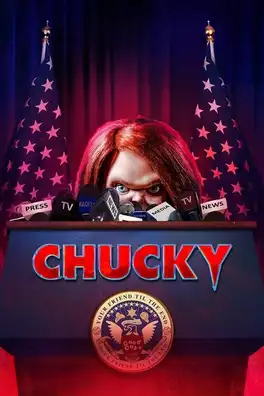
I think this is not necessarily great but I do love that the show about the possessed evil doll has its third series declaring that the White House is so soaked in blood that the only way forward for it is to be burnt to the ground and when the mythical good non-partisan independent president gets killed the C.I.A. is positively gleeful about stage managing getting someone more amenable to them back into the office.
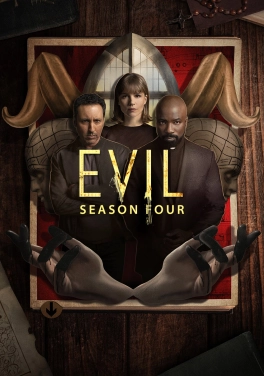
I was not really expecting the overarching plotlines to go anywhere, this show has a habit of forgetting anything ongoing at the drop of a hat, but that went even less anywhere than I ever could have expected. It felt like it was spinning its wheels for a while and didn’t know what to really do with anything and it certainly proved that feeling correct. It’s still fun up until the end with Michael Emerson continuing to be a highlight throughout.
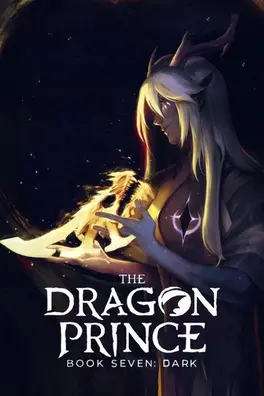
I am only still watching this out of sunk cost at this point. This show has never come together very well I think. The tone can be all over the place and its humour consistently feels like all the worst jokes in Legend of Aang while struggling with the more serious parts.
Episodes often feel like they are just spinning their wheels to wait to for the finales where things can actually happen while everyone gets delayed with a new fetch quest of grand importance and little consequence.
It does come together a bit more towards the end when everything starts to get fully serious but its still jarring in with how violent it pivots to the point where you the funny comic relief animal is decapitating things.
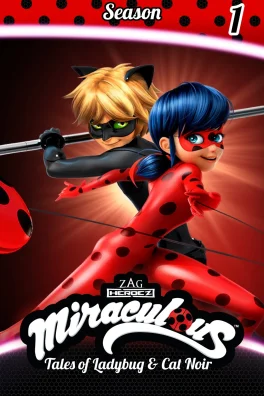
Sometimes you commit to a bit too much and you end up watching two dozen episodes of a show for babies with your partner. It has mostly been enjoyable and I am told that this does get more complex and actually has plot development as it goes on, and there was a whiff of that towards the end of the first series, but out of twenty-six episodes only maybe five of them had anything going on more than the basic villain-of-the-week plot.
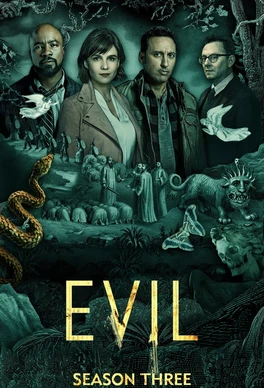
I thought that the overarching plots had stalled a bit and then a group of children doxxed the main villain and publicly accused him of being a paedophile in a kids’ browser game. Incredible television.
Though them trying to do is-it-real-or-not with the demonic visions is really wearing thin at this point. If they aren’t then there must be something very worrying in the New York water supply considering that every major character has been seeing demons regularly at this point.
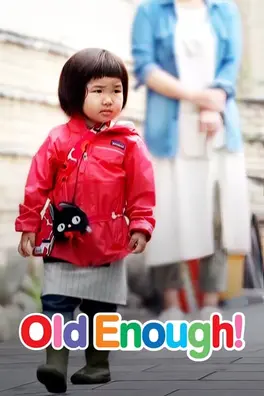
I am going to be a curmudgeon. The show is cute but there isn’t really enough to hold my interest. I think it works well as something to put on for a group watch while chatting but not that much else. Also I know that this is somewhat necessary just to create a reality show in the first place but I find the degree to which the narrator is imposing narratives on the children offputting, especially how quickly it jumps at the opportunity to frame everything in terms of gender roles.
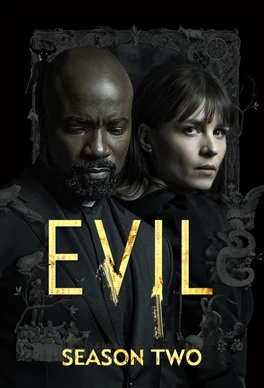
This show is silly trash and I love it. They decided they needed a counterpart for the evil psychopathic psychologist and added a good psychopathic nun. Foirfe.
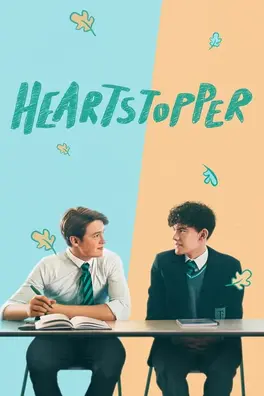
I am glad a show like this exists and I really enjoyed watching the first series with my partner and seeing the relationship between the boys develop and them figuring themselves out, but felt it had diminishing returns as it went on and the way it handled different issues often felt a bit samey and part of the style and soft tone seems to involve not letting the characters emote too strongly in places where I think the show would have really benefited from it.
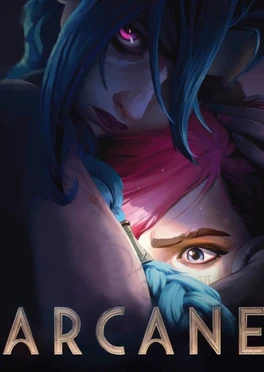
This is an exceptionally pretty show. I will give it that. But it failed to grab me at any point. It feels like it is expecting you to come in invested in these characters already. It does very little to establish them or get you to like them at all before all the bad stuff starts happening that you are clearly meant to care about but I never really did. I found it hard to get a grasp on them or why they are making the decisions they are either.
I had hoped maybe the second series could improve on the first but it doubles down on every single bad impulse. It piles one more characters with the barest hint of motivation for any of them and everyone continues to make sudden, inexplicable shifts in motivation and alliance and the consequences of what anyone is doing is constantly vague. At one point a character trails off while saying “If he gets to the hexgate…” and I begged out loud for him to finish that sentence because I had no idea what the results of that would be.
Action also stops bothering being in any way coherent in the second series, with the show more concerned with making music videos than maintaining any sense of space or physical reality in most fights.
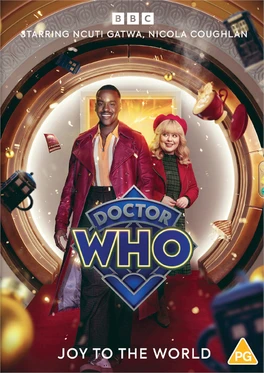
Lovely mix of silliness, heartfulness and fun scifi plotting that one would expect from Moffat. I love the wee lesbian though I am surprised that she wasn’t more central to the episode and Anita obviously hits it out of the park with the surprise mini episode she got to be co-star of in the middle of this one.
The weak link, which I felt as a recurring issue with the last series, is a resolution that is fairly thinly justified and in this case also feels like reheated leftovers from Boom, which itself felt like it was relying on established tropes from previous Moffat stories to fill in the gaps. Like the ending is a photocopy of a photocopy of a person’s consciousness uploaded into a computer to exist in some sort of cyberspace afterlife.
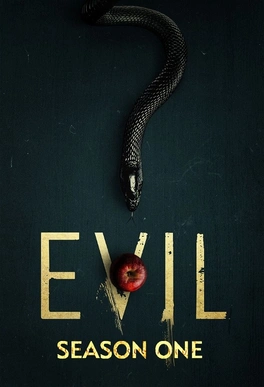
Silly little procedural with an arc plot of the very obviously made up as it goes along variety. It is always a bit fun to see what they’ll do next in this kind of show and unlike most of them it has Michael Emerson who is always a delight as a villain.
It does occasionally—Exorcism Part 2 in particular—slap you in the face with the fact that you are watching a procedural where the characters are working for an even more evil organisation than the police: The Catholic Church.
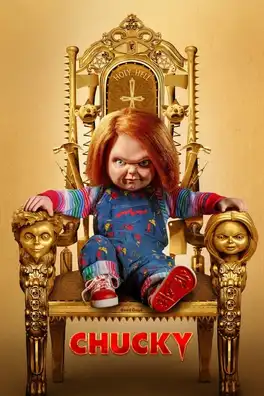
The first series of this show manages a steady escalation of both violence and camp as it starts to centre Chucky more and pull in various elements from the films, which is a thing the second series can’t really do a second time but it still manages to have a rising tide of ridiculousness throughout with its different versions of Chucky as well as the wonderful stuff focusing on Tiffany’s Jennifer Tilly facade falling apart. I also love G.G.